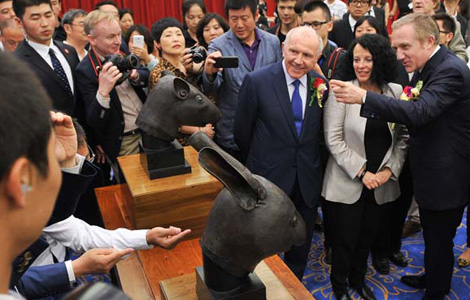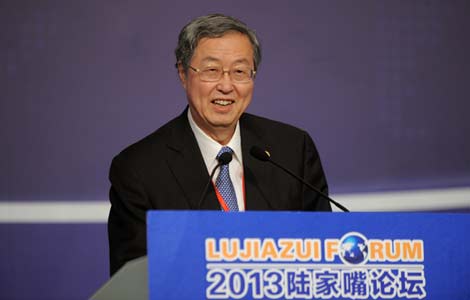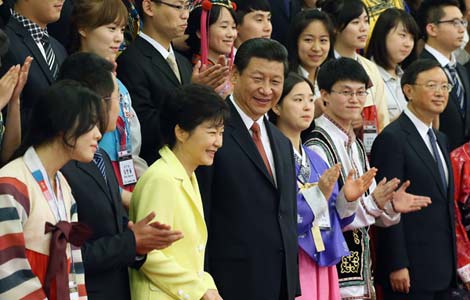EU firms eye China's clean-tech market
Updated: 2013-06-29 07:42
By Cecily Liu and Tuo Yannan (China Daily)
|
||||||||
To reduce pollution, the German government invested heavily in public transport and pedestrian and bicycle network systems to reduce vehicle emissions. In recent years, new regulations were also introduced to prohibit polluting automobiles from entering Germany's largest cities, he said.
 |
Regulations on recycling systems to prevent harmful substances from entering landfills were also introduced with strict monitoring. The formerly polluted Ruhr area has since undergone rigorous urban renewal, Voigt said.
Europe's increasingly ambitious goals to reduce emissions has produced many globally leading businesses in the clean-tech and energy efficiency field, and many of them are now keen to bring their technologies and expertise to China.
One example is Ricardo-AEA, a subsidiary of the British engineering consultancy Ricardo. With extensive experience advising the British and other European governments on achieving emission reductions targets, Ricardo-AEA is keen to help the Chinese government do the same, said managing director Robert Bell.
"When devising policies, you wouldn't just be looking at energy alone, because energy, climate change, air quality, waste management, transport and other factors all interact. We have approaches which look at all of these interactions, and so provide cities with an optimal way forward," Bell said.
A recent project Ricardo-AEA completed in China in cooperation with Tsinghua University is a study of how ready the Chinese cities in Guangdong, Hubei and Chongqing are for developing carbon-trading markets.
"We were looking at the issues that needed to be addressed to implement the pilot schemes most effectively, which are, how to collect data and use it to set robust caps on emissions, as well as their approach to enforcement," said Chris Dodwell, the director responsible for Ricardo-AEA's international markets.
Dodwell said that measurements of baseline data of industrial activities are also key to setting carbon prices in an effective carbon trading market, and this is also expertise that Ricardo-AEA can help China with.
Another policy Ricardo-AEA helped the UK government introduce, which Dodwell said could help China, is the Climate Change Agreements, which allows eligible energy-intensive businesses to receive tax discounts on energy delivered to non-domestic users, in return for meeting energy efficiency targets.
"Industry energy efficiency is a main issue China needs to grapple with, and we can help China develop policies which can save businesses money as well as reduce energy demand," he said.
Another company that has found a market helping China reduce emissions is the British engineering company Mahle Powertrain, which has worked with many Chinese automotive companies to develop energy-efficient engines.
Marco Warth, the company's engineering director, said that Mahle Powertrain's competitive advantage in China is its experience in Europe, where stricter emission standards mean leading technologies are developed more quickly.
He said China's current laws on emissions standards are similar to the legislation known as Euro 4, whereas Europe adopted a new iteration of the standard, Euro 5, in 2008 and will adopt the more stringent Euro 6 next year.
"Many of our Chinese clients are taking a long-term view to adapt to higher standards voluntarily, in anticipation of future regulation changes," Warth said.
"They think, 'It's Euro 4 now, but with the pace of change we see in China, especially in big cities, the government may put in place some legislation before the countryside does. So we'll aim for Euro 5 or even Euro 6'," he said.
Susanna Ma contributed to this story.
Most Viewed
Editor's Picks

|

|

|

|

|

|
Today's Top News
US Senate approves immigration reform
Obama visits Mandela
Premier Li: Target for growth can be met
Prudent monetary policy to stay
Polluted river lifts cancer deaths
Looted relics return to China
Forty years of music with China
Industry to pay 15% more for natural gas
US Weekly

|

|














